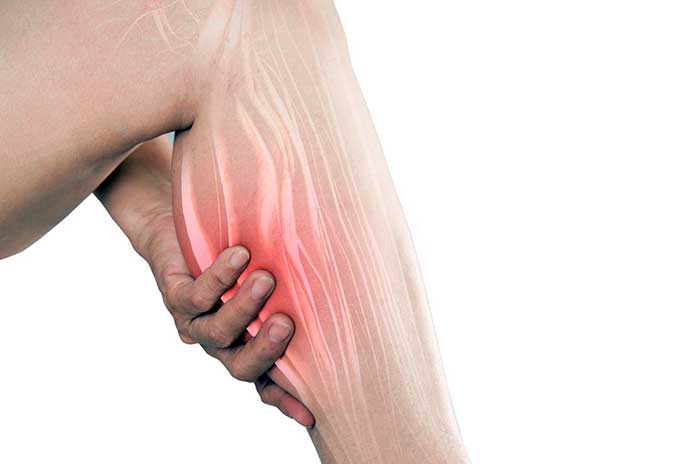Vital for the body: Magnesium is one of the minerals we should take daily with food. A magnesium deficiency has very typical symptoms – which, if ignored, can mean serious problems for our health.
Ouch, that hurts! Anyone who has been woken up at night by a foot or calf cramp knows how uncomfortable it can be. But the cramp is not only painful. It is also a sign of a possible magnesium deficiency. Calf cramps are classic symptoms. If you suffer from it regularly, you should have it checked out by a doctor. Magnesium is an essential mineral. If the body does not get enough of it over the long term, diseases such as high blood pressure or diabetes can be promoted.
How Much Magnesium Does The Body Need?
Nutrition recommends that an adult woman consume 300 milligrams of magnesium daily with food. This is relatively easy because the mineral is found in many delicious foods. The need increases if you regularly do sweaty sports and take pills or medication such as glucocorticoids. In these cases, pay more attention to signs of magnesium deficiency and take symptoms such as calf cramps seriously.
That Is Why Magnesium Is So Essential For Our Body
Magnesium is one of the minerals that we know but tend to underestimate. Since it doesn’t strengthen the immune system like vitamin C, it can’t be that important… But that’s not true! Magnesium is super important because it is involved in energy metabolism and the nervous system and is therefore involved in our muscle performance. Besides, our body needs magnesium to form bones, over 300 enzymes, and protein.
Magnesium Deficiency: These Are Typical Symptoms
Magnesium deficiency often results in typical symptoms such as calf cramps. However, a defect does not always manifest itself in physical symptoms. Another problem: Many of the possible complaints can have several other causes. For example, calf cramps can result from wearing the wrong shoes and the resulting overloading of the muscles and does not necessarily have to be a result of a magnesium deficiency. However, oversee your body if any of these symptoms occur regularly:
- Muscle and calf cramps
- Nervousness
- Inner unrest
- Dizziness
- Poor concentration, headaches, and migraines
- Tachycardia or cardiac arrhythmia
With These Foods, You Prevent A Magnesium Deficiency
To avoid a magnesium deficiency in the first place, you should pay a little attention to your diet. However, those who regularly eat whole grain products, legumes, and green vegetables are usually well supplied with magnesium. Meat, fish, most types of fruit and vegetables, potatoes, and mineral water are also excellent sources of magnesium.
Prevent Magnesium Deficiency With Dietary Supplements
It makes sense: If we suffer from a magnesium deficiency, we get a magnesium supplement from the drugstore or pharmacy, and everything is back on track. However, please cover your needs with groceries. You cannot absorb too much magnesium with it. On the other hand, some dietary supplements are highly dosed, so the body is greatly oversupplied with magnesium from food. This can cause harmless diarrhoea, but it can have severe consequences for people with kidney problems. The intake of high-dose food supplements should therefore be discussed with a doctor.
Also Read: Do I Have A Sinus Infection? These Symptoms Are Typical

